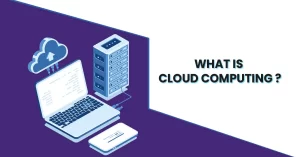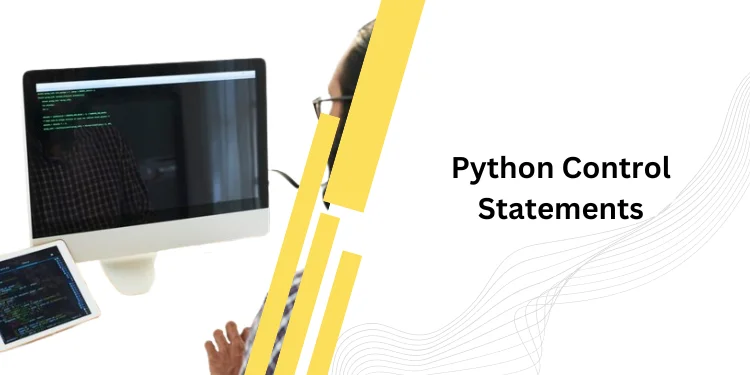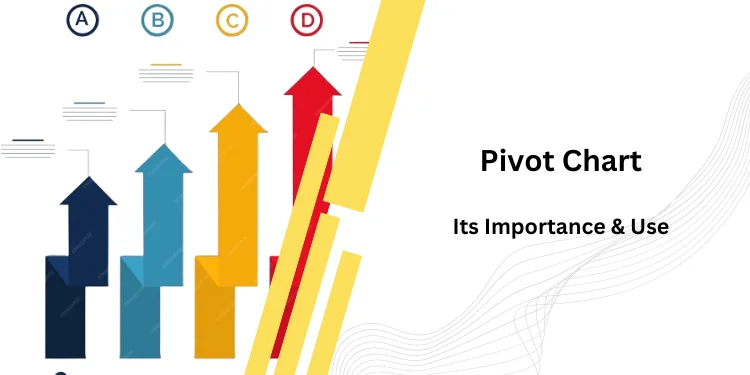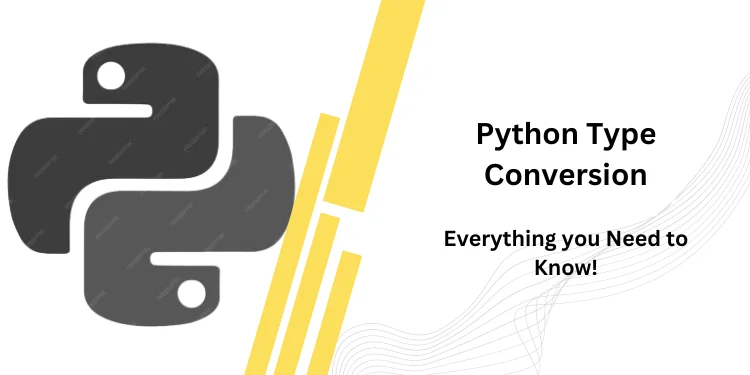Introduction to Cloud Engineer Salary in India
As more organizations realize the benefits of employing cloud services in their day-to-day operations, the cloud computing industry is booming and so is the cloud engineer salary in India.
According to Grand View Research, the global cloud computing market was worth an estimated $266 billion in 2019 and will only grow in the coming years, with the recent trend toward remote work as a result of the COVID-19 epidemic expected to increase cloud usage by another 59% across organizations. It’s no surprise that as a result of this development, individuals are getting more interested in cloud computing careers. Cloud engineering is an interesting job choice for IT professionals looking to change careers as well as newcomers to the field, with benefits such as a solid salary, the ability to work remotely, and more.
Cloud computing is currently one of the hottest technologies in the market, with the coronavirus epidemic playing a significant role. Cloud was flourishing even before the pandemic, but the pandemic encouraged people to utilize the cloud to a higher degree. People were connected remotely using video conferencing software such as Google Meet, Zoom, Microsoft Teams, Cisco WebEx, and others, whether it was for corporate meetings, virtual family gatherings, online classes, conferences, or even multiplayer gaming. Due to increasingly expanding workloads and the need to keep daily operations operating, businesses would not have survived the pandemic era without the adoption of cloud technology. You are most likely downloading something from the cloud every time you download software or other resources.
Cloud engineers are those who are responsible for assessing an organization’s architecture and shifting various functions to a cloud-based system—are in high demand as more firms migrate important operations, processes, and apps to the public, private, and hybrid cloud infrastructures. These individuals build, maintain, and connect to cloud services using a combination of technical skills, business knowledge, and expertise with at least one of the major cloud providers: Amazon Web Services, Microsoft Azure, and Google Cloud Platform.
What is Cloud Computing?

Over the previous decade, cloud computing has progressed from a “nice-to-have” to a “must-have” technology requirement in today’s business landscape. The demand for an IT professional who can oversee the migration process and handle cloud-related activities has soared as a result of this tectonic shift.
A cloud engineer is an IT expert who is responsible for all technical aspects of cloud computing, including the design, planning, management, maintenance, and support of a company’s existing infrastructure, as well as investigating options for moving various functions (such as database storage) to a cloud-based system. This individual then migrates the function to the new system and maintains it.
Cloud engineers must have technical capabilities as well as the ability to negotiate terms with vendors, manage data security, and follow best practices throughout the process in order to complete the migration. These experts also collaborate with IT teams to integrate existing structures into cloud-based systems and report progress to senior management. Here you can refer the complete guide of cloud computing.
Skills Required for Cloud Engineer in India

The role of a cloud engineer varies based on the firm for which they work. Ben Miller describes his position as a Strategic Cloud Engineer at Google as “assisting Google Cloud customers in architecting and building systems on the Google Cloud Platform.” “In GCP, I provide system design, product guidance, and teaching on best practices. I also collaborate with Google Cloud product teams to improve GCP and the experiences of our customers.” Here you can see the list of best cloud computing books.
Cloud engineers in all roles must have proficiency in the following areas:
- Linux – Cloud engineers should have a strong understanding of the Linux operating system, which companies frequently use for cloud development. Cloud engineers should understand the architecture, maintenance, and administration of Linux servers.
- Database skills – Cloud engineers should have cloud database management skills and knowledge of MySQL and Hadoop.
- Programming Skills – Cloud Engineers frequently write code in Java, AngularJS, C++, and Python, among other languages. They are not expected to learn every computer programming software language, but knowing at least two languages will help them expand their options and career opportunities. Many computer programmers specialize in a particular profession before learning the programming language.
- Networking – Cloud engineers should understand virtual networks and general network management functions.
- DevOps – DevOps is a popular framework for cloud engineering, so having a hands-on understanding of DevOps practices can be valuable to employers. Amazon Web Services (AWS) DevOps in particular is a sought-after skill by cloud providers.
- Containerization – Cloud engineers should have proficiency in containerization tools and understand Docker and Kubernetes.
- Virtualization – Cloud engineers should have the knowledge to deploy and run application software on virtual machines.
- Understanding of cloud providers – As technical cloud features and engineering practices can vary between different service providers, understanding what each offer can enhance a cloud engineer’s knowledge and make them more marketable to employers.
- Security and recovery – Cloud security is a growing priority among providers and knowledge of cybersecurity in the context of the cloud is a valuable asset.
- Web services and application programming interfaces (APIs) – Cloud engineers should have knowledge of open standards, such as XML (Extensible Markup Language), SOAP (Simple Object Access Protocol), WSDL (Web Services Description Language), and UDDI (Universal Description, Discovery, and Integration), and an understanding of how APIs are engineered.
- Interpersonal skill – In order to discover a solution, a cloud engineer must be able to read, innovate, and explain challenges. Strong communication serves as a link between the realms of simplicity and complexity. Cloud engineers must be able to collaborate effectively with those involved in software design, development, and programming.
- Creativity – Creativity is the ability to think about a problem or a task in a new or fundamentally different way, or the ability to come up with inventive ideas, using creativity. Creative thinkers are better at solving issues and comin
g up with new ideas. Individuals who work as cloud engineers have a unique view on things. - Mathematical Skills – A thorough understanding of software and related technology for programming is required for a job as a Cloud Engineer. To address the problem and make it more impactful, appropriate approaches and concepts should be applied. Many Cloud Engineers specialize in a particular field and then learn the language that is most suited to that field.
Responsibilities for Cloud Engineer in India

Cloud engineers evaluate an organization’s IT infrastructure and investigate cloud migration options. If the company decides to relocate to the cloud, a cloud engineer is in charge of managing the migration process and maintaining the new system.
Cloud engineering also necessitates managerial abilities in addition to these technological abilities. Engineers are frequently relied upon to negotiate with vendors, collaborate with other IT team members, and report on the status of a cloud migration project to top management.
Cloud development roles are in charge of developing cloud-based functions, apps, and databases. According to Mullen, many of the best practices—quick load times, support for many Internet browsers, and use as little RAM as possible—are akin to more traditional software and database development. “However, [these workers] now need to grasp the cloud environment, tools, and how that differs from working on a single machine or in a private data center,” he continues. For example, when renting hardware, these developers must understand how an application will respond when accessing databases in several places or how to efficiently conduct functions or queries.
These positions are similar to those of a traditional system administrator, who oversees an organization’s on-premise hardware and software, but with a focus on cloud-based services. Primary responsibilities include developing and implementing policies for the use of cloud services, managing requests for new technology, establishing a secure cloud environment, and ensuring appropriate availability of services, also known as uptime.
Developing and implementing policies for the use of cloud services, managing requests for new technology, establishing a secure cloud environment, and ensuring appropriate service availability, also known as uptime, are all primary responsibilities.
Mullen highlights the importance of security and availability. The cloud platforms adopt a “shared model,” in which some but not all security precautions are guaranteed. A single organization, for example, is responsible for erecting a firewall around the network that is used to access cloud services including sensitive data and business applications.
To be effective in their positions, cloud engineers must hone unique cloud computing skills. According to Mullen, these talents include anything from software development and database administration to change management and data security. It’s also crucial to pay attention to details and work as part of a team.
These abilities are similar to those acquired in a regular computer science course or by a professional working in a traditional on-premise computing environment. Many other computer science fundamentals, such as processing, data structure, and system architecture, are also applicable to cloud computing.
Eligibility
-
Completion of 12th
Students must understand how to pursue a career as a Cloud Engineer in India after completing their secondary education. We will outline a number of stages for you to take after high school to become a Cloud Engineer. The students must have completed a 10+2 level of education in physics, chemistry, mathematics, and computer science from a recognized board with an aggregate of 50% or equivalent. We’ll go over how to become a Cloud Engineer in India in this section. After high school, here are some of the stages to becoming a Cloud Engineer.
-
Entrance Examination
Here are some crucial measures to follow if you want to learn how to become a Cloud Engineer. Several institutions and colleges use entrance exams to select students for admission. Candidates must take the admission examinations for their respective universities and colleges.
Popular Entrance Examinations are:-
JEE Mains
JEE Advance
BITSAT
SRMJEEE
VITEEE
WBJEE
-
Bachelor
Students must apply for bachelor’s level programmes after successfully completing 10+2 in physics, chemistry, math, and computer science. The most common bachelor’s degree program for a Cloud Engineer career is listed below.
Popular Bachelor’s Level Programmes
B.Tech in Computer Science and Engineering
B.Tech in Computer Science
B.Tech in Information Technology
B.Tech in Computer Engineering
-
Post-Bachelor
After completing a bachelor’s degree, a candidate has various alternatives for pursuing a career route. Both of the choices that a candidate can explore are listed below.
Choice 1: The candidate can begin working in an entry-level position after completing a bachelor’s degree. It will give him or her experience and insight into the industry. He or she can return to school and pursue a master’s degree after a few years. For senior positions, a master’s degree is more valuable.
Choice 2: After completing the bachelor’s degree program, the candidate can continue his or her studies without missing a semester. He or she can begin working in the sector after completing a master’s degree.
Popular Master’s level programmes
M.Tech in Computer Science and Engineering
M.Tech in Computer Science
M.Tech in Information Technology
M.Tech in Computer Engineering
Cloud Engineer Salary in India based on Location

Karnataka, Mumbai, and Tamil Nadu are among India’s IT hotspots. Because demand for cloud engineers varies by region, compensation for cloud engineers varies as well. So, let’s have a look at how much these IT centers pay cloud developers.
|
Job Location (State) |
Average Salary |
|
Karnataka |
₹9,14687 |
|
Maharashtra |
₹7,19,119 |
|
Tamil Nadu |
₹4,27,000 |
Salary based on Job Designation
|
Job Title |
Range |
Average |
|
Solutions Architect |
₹568k – ₹3m |
₹2,022,356 |
|
Technical Architect |
₹1m – ₹4m |
₹2,206,551 |
|
Cloud Solutions Architect |
₹482k – ₹4m |
₹1,904,765 |
|
Development Operations (DevOps) Engineer |
₹340k – ₹2m |
₹761,935 |
|
Senior Solutions Architect |
₹2m – ₹4m |
₹2,913,399 |
|
Information Technology (IT) Architect |
₹1m – ₹4m |
₹2,125,666 |
|
Senior Software Engineer |
₹646k – ₹3m |
₹1,551,605 |
|
I |
₹582k – ₹2m |
₹1,154,772 |
|
Senior Software Architect |
₹2m – ₹6m |
₹3,062,842 |
Source: Payscale
Top IT Companies for Cloud Engineers

Because of the significant reliance on the cloud, there is a surge in demand for cloud engineers, who can earn great salaries if they have the necessary competence. More than 95 percent of organizations anticipate raising their cloud spending by more than 47 percent, implying a demand for IT employees with multi-cloud expertise. According to Gartner, the world’s biggest research firm, customer expenditure on public cloud services would increase by 18.4 percent this year compared to 2022.
As a result, there has been a rise in the market for the best cloud engineers, resulting in an increase in recruiting. So far, the cloud’s future appears bright, and so do the job chances for IT professionals interested in working in the cloud. So, let’s take a look at the best cloud computing companies to work for in 2022. These are the top 5 cloud engineering companies to work for if you want to advance your career as a cloud engineer, work in dynamic environments, and earn a high salary as a cloud developer!
Microsoft Azure
With a global market share of around 16 percent, Azure is the second most trusted and commonly utilized cloud service provider. Azure includes a number of features built by talented cloud specialists from around the world, including data resiliency, big data insights, trustworthy data storage, unified data governance, flexibility, and more. In comparison to other cloud service providers, Azure has data centers in 140 countries, which is the biggest number of worldwide regions.
Most Fortune 500 firms trust Azure because of its vast infrastructure network. Azure developers and administrators get a high compensation that varies by area and skyrockets with experience with Azure. Another advantage of working on Azure is that it cuts down on the number of on-site resources required to support a developer team.
Digital Ocean
DigitalOcean, which has its headquarters in New York, has developed rapidly while being relatively new to other cloud service providers. It is a high-growth cloud-based technology company that assists in the deployment and scaling of applications that run on several computers at the same time. More than 85% of current DigitalOcean employees would suggest the company to a friend and approve of the CEO. It is also said to have a pleasant working atmosphere as well as excellent collaboration and team support.
Amazon Web Services(AWS)
With a market share of 47.8%, Amazon Web Services tops the list of the most frequently used and adopted cloud providers in the globe. It claims to offer 175 full-featured cloud services, with data centers located all over the world. Small to big scale startups, government organizations and agencies, well-established corporations, and leading firms all employ its hundreds of capabilities, which include databases, monitoring, event management, change management, compliance, and security.
AWS engineers are responsible for maintaining, expanding, securing, and developing the AWS infrastructure for running applications. They’re also in charge of overseeing the deployment and expansion of AWS cloud infrastructure. AWS pays its cloud engineers well, although the salary varies depending on the country. Furthermore, not only is the pay good, but the growth environment is a big reason why individuals desire to work with AWS.
Google Cloud Platform(GCP)
The Google cloud platform is noted for its future-proof infrastructure, robust data analytics, data visualization, and other features. It now offers over 90 IT services and products, all of which are designed and maintained by one of the world’s greatest developers. Although GCP has a lower market share than Azure and AWS, the degree of skill development provided by working at Google and with the best minds is unrivaled. When compared to other cloud providers, Google also has the greatest employment rate in its cloud computing industry. Because of their professional cloud experience, cloud engineers that achieve the Google Certified Professional Cloud Architect certification earn significantly more.
Kamatera
After the most well-known cloud providers, Kamatera, a global cloud services platform provider, follows. It provides all sizes and types of businesses with enterprise-level cloud infrastructure services and products. CPU monitoring, email monitoring, cloud firewalls, credential management, access control, backup scheduling, bare-metal recovery, and many other capabilities and services are well-known. Working here necessitates outstanding abilities, and as a result, the pay is competitive.
Because data volumes are soaring, cloud storage is a burgeoning sector, and storage companies are hiring for a variety of professions to meet that need. Employees with competence in data technology, cloud engineering, and storage management can work for storage companies. Job opportunities, notably in storage systems and engineering, and the employee experience, including ratings and facts about company culture, make cloud storage providers stand out.
Conclusion
We observed in this blog that cloud computing hopefuls have a lot of job options in the cloud business. Learning how to combine analytics and visualization talents in the cloud will be the icing on the cake for your resume.
Cloud developers, without a doubt, have a bright future ahead of them. With the passage of time, the demand for cloud engineers will only grow. So brush up on your cloud expertise and enroll in our cloud computing course to add certification to your resume!
Cloud computing is an interesting, dynamic field that is now seeing continuous demand in the IT industry. Developing cloud-working skills can help you carve out an intriguing profession helping businesses stay on the cutting edge of technological innovation.
Frequently Asked Question’s
1. Is cloud engineering a good career in India?
Cloud engineers evaluate a company’s technological infrastructure and consider cloud migration options. If the organization decides to migrate to the cloud, a cloud engineer is in charge of coordinating the conversion process and maintaining the new system.
Because the number of people who are familiar with cloud computing is growing, a job as a cloud engineer is an excellent fit. Demand for qualified and certified cloud systems engineers is also on the rise. IT experts with multi-cloud experience will be more in demand in 2020. Companies all across the world are embracing cloud computing. Because cloud technology has grown so important, over 95% of firms aim to raise their cloud expenditure in the near future.
A new study backs up what most of us have been saying for years: cloud computing is difficult. Worthwhile endeavors, on the other hand, are rarely simple.
Unexpected cloud complexity has put the newly formed cloud groups under such much strain that they are at risk of failures and breaches. This issue has not yet been addressed, but based on the information in this study and the fact that cloud growth in 2021 was lower than predicted, I believe it to be the case. Until the complexity issue is handled, growth will remain stagnant.
Cloud technology suppliers should provide greater support to their clients in order for them to learn how to apply cloud computing technology in practice. The overpromising stems from a lot of marketing hype touting easy migrations to the public cloud when there are actually relatively few easy migrations. Don’t forget that shifting to the public cloud is a worthy trip with both short- and long-term benefits for most businesses. However, you must be aware of the facts.
If you work in IT but aren’t a programmer, it’s likely that deciding which certification to pursue will be challenging. This is true for the majority of technology, let alone Cloud computing. Knowledge of a coding language is required for many training courses and certifications.
3. What is the average salary of a cloud engineer?
Let’s get this conversation started with a diagram. According to ZipRecruiter, the average Cloud Engineer salary in India ranges from INR 104k to 145k and can reach $250k. Now that I’ve had your attention, let’s look at some data about Cloud Engineer Salary in India.
Trends in Cloud Adoption
By 2022, over half of all “IT spend” will be cloud-based, according to IDC. By 2020, all software, services, and technology will account for 60-70% of total consumption. This should give you an idea of what Cloud Computing will look like in a few years. If the previous arguments aren’t enough to persuade you, consider the following Rightscale figures on Public Cloud Spend:
- Enterprises spend more than $6 million on public cloud each year, with 52 percent spending more than $1.2 million.
- In 2021, 20% of businesses intend to more than double their public cloud spending, while 71% plan to increase spending by more than 20%.
4. Is cloud engineering a good career for freshers?
In a career as a cloud engineer, individuals are in charge of transferring the company’s software to the cloud. Cloud Engineers are also responsible for the creation, implementation, and debugging of cloud-based applications. Cloud Engineers keep the development process running smoothly by managing and regulating the programs. Cloud systems engineers must have prior system management and system maintenance experience. Individuals who opt for a career as a cloud engineer are also in charge of translating architectural specifications. To protect data confidentiality, they use cloud access control in their cloud engineer career path.
“Cloud development will be the most in-demand expertise in 2022, owing to rising demand.” In most circumstances, cloud development skills are equally easy or difficult to master as the matching on-premise technology stack, and there is significant overlap between the two in many cases. The rising gap between the supply of skilled cloud resources and the rapid enterprise adoption of Cloud platforms is driving today’s resource demand.”
5. Are cloud engineers in-demand?
In 2024, “cloud engineer” is expected to be among the top ten most in-demand IT careers. Cloud engineers are in high demand right now, owing to the fact that many companies are migrating their business activities to the cloud. As more businesses move their data to the cloud, the demand for cloud engineers continues to rise. The most in-demand cloud computing job in the U.S. today is cloud engineer. A cloud engineer makes approximately $118,000 per year, according to Indeed.
Cloud services will grow three times in size by 2022, according to figures. In 2023, the expansion will be more concentrated. Through the years 2022 and 2023, this climb will focus on total IT service. As a result, trainees must acquire cloud computing abilities that are relevant to the industry. This will enable them to pursue high-paying cloud computing employment now and in the future!
Every year, as cloud computing spreads its wings, the demand for more computing resources and specialists grows. This has been a recurring process for many years, but in recent years, there has been a massive increase in the number of employment available, as well as the number of people interested in taking Cloud Computing courses and certifications.
6. What qualifications do you need to be a cloud engineer?
Despite knowing more about what a Cloud Engineer does, we’re still no closer to addressing our original question: Can a Cloud Engineer code?
And Cloud Engineers do code, but only in specified areas.
Let’s take a brief look at the areas where Cloud Engineers are most likely to code:
- Infrastructure As Code: Writing code that creates, changes, or deletes cloud infrastructure is known as Infrastructure As Code.
- Serverless Functions: Creating simple utility methods that can be used for activities like backing up data or delivering logs.
- Build / Deploy Tooling: Writing code for packaging and deploying apps is known as build/deploy tooling.
Monitoring: Monitoring entails instrumenting apps such that they output data that may be utilized to remotely debug them.
7. Does a cloud engineer need coding?
Individuals can easily construct, host, and administer apps using Cloud platforms as a developer. As a result, they will find it simple to construct a Cloud application. Users can migrate their existing code to the cloud or build up an environment to write code in minutes using the numerous services offered by Cloud Service suppliers.
With their multiple offerings, platforms like Amazon Web Services and Microsoft Azure make it simple to apply many end-to-end DevOps methods on the Cloud. It becomes quite simple to create a cloud-based application that enables automated deployment and production administration.
They are capable of doing so. However, it is not as simple as a developer or administrator may think. To begin, we’ve previously outlined the advantages of learning how to write for cloud computing. So it’s evident that knowing how to code is always an advantage when it comes to Cloud Computing.
However, it’s critical to consider why we’re utilizing Cloud Computing in the first place. As previously indicated, platforms like Amazon Web Services, Microsoft Azure, and Google Cloud Platform provide a wide range of services, many of which do not require coding. So, whether we realize it or not, we are already using Cloud.
8. What are the skills of a cloud engineer?
- Programming Skills: Cloud Engineers frequently use Java, AngularJS, C++, and Python to write code. They are not expected to master every computer programming language, but understanding at least two will help them extend their chances and professional prospects. Many computer programmers specialize in a field before learning how to code in that language.
- Interpersonal skill: Individuals must be able to read, invent, and express challenges in order to discover a solution in a profession as a cloud engineer. Strong communication serves as a bridge between the realms of simplicity and complexity. Cloud engineers must be able to collaborate effectively with those involved in software development, programming, and design.
- Creativity: Creativity is the ability to think about a problem or a task in a new or fundamentally different way, or the ability to come up with inventive ideas, using creativity. Creative thinkers are better at solving issues and coming up with new ideas. Individuals who work as cloud engineers have a unique view on things.
- Mathematical Skills: A thorough understanding of software and related technology for programming is required for a job as a Cloud Engineer. To address the problem and make it more impactful, appropriate approaches and concepts should be applied. Many Cloud Engineers specialize in a particular field and then learn the language that is most suited to that field.
IT management is a demanding job that grows more so every day as new technologies emerge and the cloud is promoted as the next big thing in computing. Actually, the cloud isn’t such a bad idea, and if you master the technique, it may make the job of IT management a lot less difficult, if not entirely pleasant. A large portion of an administrator’s time is spent maintaining systems, which include those that support a variety of IT tools such as security, monitoring, and administration. Moving these tools to the cloud reduces the hardware and software burden, which is important in this case.
Cloud-based tools are not only less demanding on hardware and software, but they are also easier to maintain and support, as well as more versatile and user-friendly. You no longer need to update software when a new version is released; this is handled automatically by the vendor in the cloud. By moving to the cloud, administrators will be able to access their tools from nearly any device and location. You may manage your systems from your desk, a beach laptop, or your home tablet. The IT architecture and administration tools operate flawlessly with any remote workstations you’re in charge of, whether they’re in your home office or a satellite office.
IT professionals will appreciate the stress alleviation since, while not quite at breaking point, they are feeling the strain. According to a poll conducted by GFI this year, 77 percent of IT administrators in the United States find their jobs demanding, and six out of ten employees work at least six hours of overtime per week. The cloud not only reduces strain, but it also allows for some overtime work to be done from home if necessary.
10. Is there a shortage of cloud engineers?
According to a recent story in The Wall Street Journal, there was a dearth of experienced cloud personnel before to COVID-19, and the epidemic generated a new wave of demand. 1 According to a report from labor and economics research firm Emsi, annual cloud job ads increased by more than 90% between 2017 and 2020.
In the first three quarters of 2021, the trend continued, with cloud computing job postings up about 31% in the nine months through September, compared to a nearly 8% increase in overall IT job postings during the same period.
“Cloud computing is still the most in-demand expertise,” Megan Slabinski, district president of hiring agency Robert Half, said. “Never before has there been such a surge in demand.”
This is bad news for businesses who want to increase their cloud usage and maximize the value of their multi cloud strategies. They are now vying for talent with AWS, Google, and Microsoft, as well as dealing with a market where salaries are rising and cloud workers are wanting more autonomy, flexibility, and other benefits.
Gartner discovered that the most significant barrier to deploying emerging technologies, mostly cloud-based technologies like databases, machine learning, advanced storage, and analytics, is a talent shortage, according to its “2021-2023 Emerging Technology Roadmap,” based on surveys of 437 global firms.














One response to “Cloud Engineer Salary in India | DataTrained”
[…] upheld by Canonical and the open-source community. This Debian derivative is normally utilized in cloud and server applications because of its continuous advancement. It likewise keeps on launching in an alternate version […]